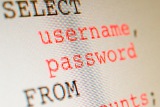These Simple Password Tips Can Protect You from Hackers
 Computer users today face a daunting task: A growing number of sites require passwords, and security experts recommend that users not reuse the same passwords at different sites.
That's a lot of passwords to remember. How many of us really think to write down our passwords and store that piece of paper in a safe place?
However, choosing the right passwords today is an increasingly important task as more of us do our banking and shopping online. Weak passwords pose little challenge for hackers, who can decipher them and steal our important financial information.
The Atlantic Monthly, though, recently offered some password tips from Alex Horan, who calls himself a "white hat" hacker. In other words, he's a good hacker.
Here are some password suggestions from Horan. Computer users today face a daunting task: A growing number of sites require passwords, and security experts recommend that users not reuse the same passwords at different sites.
That's a lot of passwords to remember. How many of us really think to write down our passwords and store that piece of paper in a safe place?
However, choosing the right passwords today is an increasingly important task as more of us do our banking and shopping online. Weak passwords pose little challenge for hackers, who can decipher them and steal our important financial information.
The Atlantic Monthly, though, recently offered some password tips from Alex Horan, who calls himself a "white hat" hacker. In other words, he's a good hacker.
Here are some password suggestions from Horan.
Passphrase is a better form of protection
Horan told the Atlantic that computer users are better off using passphrases than they are passwords.
What's the difference? A passphrase is made up of a string of whole words. Good passphrases can be the first line in a favorite book or a lyric from a favored song. These aren't easy for hackers to guess, Horan said. They're also not easy for computers running a brute force attack—hyper-speed password-guessing—to crack.
Longer is better
It makes sense that longer passwords are more difficult for hackers and computer programs to guess. However, you might be surprised at how much difference a single character can make.
If your password is 10 characters long, it can take an average of five days for a hacker to decipher it. If you password has just one more password, it will take an average of 306 days to crack it. And if your password has 14 words? It will take more than 72 million days on average to crack it.
Not all sites need smart passwords
Of course, not all websites are created equal when it comes to sensitive information. Because of this, Horan told the Atlantic that computer users can use so-called “dumb” passwords—ones that are fairly easy to crack—at certain sites.
For instance, if you belong to a writer's group that requires a password, you can get away with a simple pass, but when you are choosing a password for your bank, make sure to use the most complicated one that you can remember.
This helps make logging into sites a less arduous task while still protecting your financial information.
Read more at the Atlantic Monthly.
|













No comments:
Post a Comment